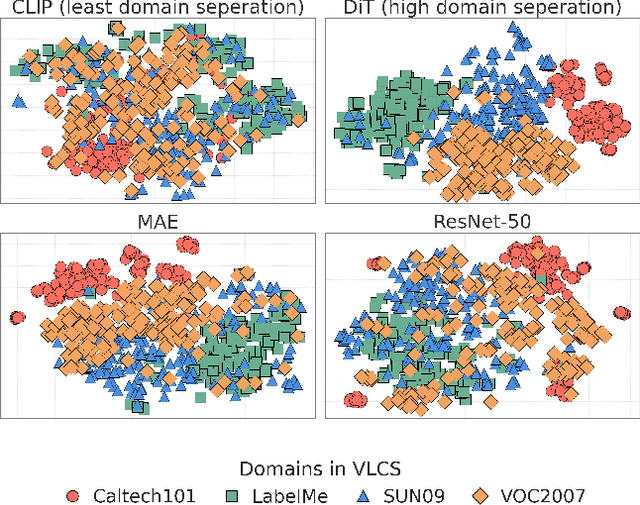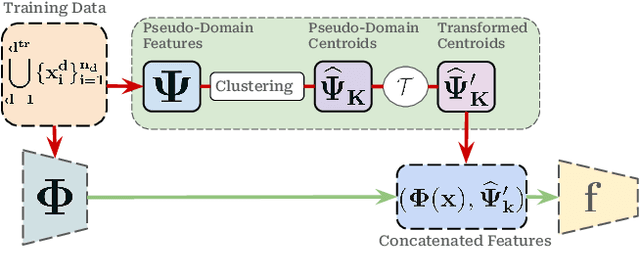What's in a Latent? Leveraging Diffusion Latent Space for Domain Generalization
Paper and Code
Mar 09, 2025



Domain Generalization aims to develop models that can generalize to novel and unseen data distributions. In this work, we study how model architectures and pre-training objectives impact feature richness and propose a method to effectively leverage them for domain generalization. Specifically, given a pre-trained feature space, we first discover latent domain structures, referred to as pseudo-domains, that capture domain-specific variations in an unsupervised manner. Next, we augment existing classifiers with these complementary pseudo-domain representations making them more amenable to diverse unseen test domains. We analyze how different pre-training feature spaces differ in the domain-specific variances they capture. Our empirical studies reveal that features from diffusion models excel at separating domains in the absence of explicit domain labels and capture nuanced domain-specific information. On 5 datasets, we show that our very simple framework improves generalization to unseen domains by a maximum test accuracy improvement of over 4% compared to the standard baseline Empirical Risk Minimization (ERM). Crucially, our method outperforms most algorithms that access domain labels during training.
 Add to Chrome
Add to Chrome Add to Firefox
Add to Firefox Add to Edge
Add to Edge